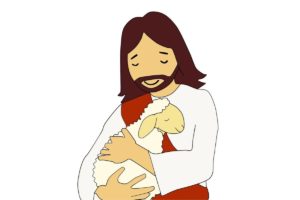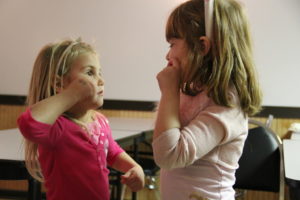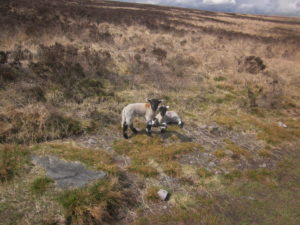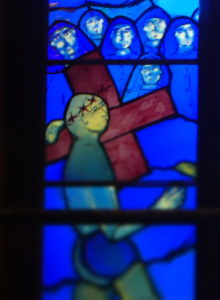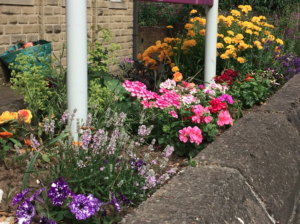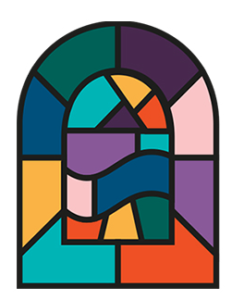
Image from the Living in Love and Faith Website
https://www.churchofengland.org/resources/living-love-and-faith
The Readings
Proverbs 9.1-6
Wisdom has built her house,
she has hewn her seven pillars.
She has slaughtered her animals, she has mixed her wine,
she has also set her table.
She has sent out her servant-girls, she calls
from the highest places in the town,
‘You that are simple, turn in here!’
To those without sense she says,
‘Come, eat of my bread
and drink of the wine I have mixed.
Lay aside immaturity, and live,
and walk in the way of insight.’
John 6.51-58
I am the living bread that came down from heaven. Whoever eats of this bread will live for ever; and the bread that I will give for the life of the world is my flesh.’
The Jews then disputed among themselves, saying, ‘How can this man give us his flesh to eat?’ So Jesus said to them, ‘Very truly, I tell you, unless you eat the flesh of the Son of Man and drink his blood, you have no life in you. Those who eat my flesh and drink my blood have eternal life, and I will raise them up on the last day; for my flesh is true food and my blood is true drink. Those who eat my flesh and drink my blood abide in me, and I in them. Just as the living Father sent me, and I live because of the Father, so whoever eats me will live because of me. This is the bread that came down from heaven, not like that which your ancestors ate, and they died. But the one who eats this bread will live for ever.’
New Revised Standard Version Bible: Anglicized Edition, copyright © 1989, 1995 National Council of the Churches of Christ in the United States of America. Used by permission. All rights reserved worldwide. http://nrsvbibles.org
The Sermon
By Siobhan H
Walking in the Way of Wisdom
This morning we hear two invitations in our scripture passages:
“Come leave your simple ways and walk in the way of insight and wisdom so you may have life.”
and
“Come and eat the bread of life so you may have life eternal.”
Both of these invitations reveal the infinite love of the Creator of all things, the source of life, who sustains us, and feeds us. Baptism marks the beginning of a journey with God which continues for the rest of our lives, the first step in response to God’s love. The words of the liturgy remind us that...
‘As children of God, we have a new dignity and God calls us to fullness of life’.
At communion we receive spiritual nourishment for the journey….
“The body of our Lord Jesus Christ,
Which was given for you,
Preserve your body and soul to everlasting life.
Take and eat this in remembrance that Christ died for you,
And feed on him in your heart by faith with thanksgiving.”
After death at the funeral service, we hear the words ‘I am the resurrection and the life’ says the Lord. Those who believe in me, even though they die will live.’
How different would our existence look if we were to accept the invitation to leave our simple lives to walk in the way of insight and wisdom?
Wisdom in my experience is not sentimental. At times it has challenged me to face difficult truths about my life and relationships. It requires me to be honest in my thoughts and hold integrity. It utilises knowledge, experience, deep understanding and insight. By becoming curious, asking questions, reflecting more deeply we can allow the wisdom that lies just beneath the surface of our daily lives to emerge.
I’d like to share a personal example with you.
Recently, on retreat I visited a walled garden where I noticed three doorways.
The first doorway was blocked by bricks, the second had a mirror attached to it reflecting the roses in the garden, and the last had a gate ajar.
Initially, I was drawn to the mirrored door, the roses beautifully inviting. Then came the realisation there was a deception here because the reflected image of the roses was not real. It led me to consider that in life sometimes we can look at situations through rose tinted spectacles or events can look rosy in retrospect.
The doorway with the gate ajar somehow offered the invitation to seek God’s will, truth, and wisdom to embrace a fuller, yet more uncertain life. I sense that when we choose to seek wisdom it is then that our doors of perception open more fully, and we can begin to imagine and dream of new possibilities, allowing the seeds of life we carry within us the potential to germinate, grow, and flourish.
Returning to our context, how would it be if we were to seek God’s will, truth, and wisdom as a church, if we opened our doors of perception more fully, and began to imagine and dream of new possibilities?
Collectively as a church we are called to leave our simple ways, to discern, seek wisdom and sense where the new seeds of life lie. Wisdom for me is founded on the insight that we are all children of God, and the miracle that God who lies within and beyond us knows each of us by name and loves us. This leads me to tell you about a new course “Living in Love and Faith”, which the Church of England is inviting us to engage with, and in doing so to play our part in discovering what God is saying to the Church today. It invites us to engage in a listening process and have wisdom to discern how we can offer dignity and fullness of life to the whole children of God.
The course asks…
How do questions about identity, sexuality, relationships, and marriage fit within the bigger picture of the good news of Jesus Christ?
What does it mean to live in love and faith together as a church?
The church acknowledges that issues of gender and sexuality are intrinsic to people’s identity, their lives and the loving relationships that sustain and shape them.
The hope is that as we engage in listening to the people’s lived experiences, deeper relationships will be forged and the process of examining afresh our lives and shared learning will deepen our knowledge and understanding about what it means to be human in relationship with others in the face of difference and diversity, and each of us will grow in wisdom.
In today’s gospel passage we witness the Jews arguing amongst themselves, ‘How can this man give us flesh to eat?’ Jesus makes it clear later in this chapter that he is speaking metaphorically; ‘The spirit gives life, the flesh is nothing’ Yet those who misunderstood him were offended by his talk of eating flesh and blood because they were stuck in a physical mindset, ignoring the things of the Spirit. Sometimes, because we are human, we become stuck in a certain mindset, certain doctrines, or teachings.
Wisdom includes true listening, being present, open, and responsive. It is about being open to the Source of Mystery, the Spirit moving within us and the world.
Wisdom is inhibited when prejudice, silence, ignorance, fear, hypocrisy and power dominate. We can all have our bias, and prejudices that we need to be aware of and as I reflected earlier wisdom can challenge us. If we are to be a church of welcome and belonging, we need to take down barriers that divide us and do as Jesus does. He simply invites us to ‘Come and eat the bread of life’ that we may have eternal life. The table of the Lord is open and inclusive to all who believe in him. It is my belief the relationship we experience with the Risen Lord when we receive bread of life at communion is transformative both personally and as the body of Christ.
I invite you now to listen to these invitations.
Come leave your simple ways and walk in the way of insight and wisdom so you may have life.
Come and eat the bread of life so you may have life eternal.
Come and join one of our Living in Love Faith Groups so that we may discern how we truly embody the Good News of Jesus Christ and celebrate our shared humanity.
Amen
The Prayers
Prepared by Siobhan H
We pray for St Mary’s and our mission partnership churches. Help us, your people, to walk in the way of insight and wisdom that we may sense where the new seeds of life lay in our local community. Help us to make connections between faith and daily living. Help us to be passionate and prophetic about justice, equality and peace. Help us to respond to human need by loving service
Lord in your mercy,
Hear our prayer
We pray for those who in the past weeks have been affected by wildfires, particularly those who have lost homes and loved ones. We pray also for an understanding and acceptance by all nations that we must urgently commit to protect our endangered ecosystem which is at the centre of God’s wonderful creation.
Lord in your mercy,
Hear our prayer
We pray for all children during the school holidays especially those who experience food poverty, for those who have received school exam results and for those making transitions. For those starting nursery or school for the first time give them a sense of belonging, for those moving classes the joy of growing relationships, for those moving schools a new founded independence and for those starting college or universities wisdom for a new season in their lives.
Lord in your mercy,
Hear our prayer
We pray for those in any kind of need. For those who are troubled or distressed, isolated or lonely, bereaved, or unwell at this time. Remembering in a time of silence those known to us. May they be strengthened by your spirit and sense your healing loving presence, grace and comfort with them at this time. Let us show kindness and empathy as we travel beside them.
Lord in your mercy
Hear our Prayer
We pray for those who have recently departed from this life in this community and beyond,
In your boundless compassion console those who mourn and comfort them in their sorrow.
In remembrance of all those whom we love, but no longer see.
We thank you for giving them as companions on our pilgrimage on earth. May God, who calls each of us by name, bring all the departed to the dawn of new life.
Let us pray for a moment for our own personal intentions and the intentions of those who have asked for our prayers
Merciful Father,
accept these prayers
for the sake of your Son,
our Saviour Jesus Christ.
Amen.



